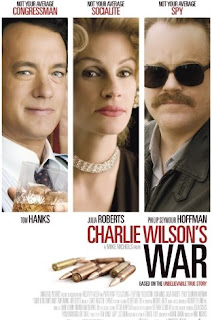 "P2" *** (out of ****)
"P2" *** (out of ****)"P2" is really nothing more than a less than average "B" slasher film which offers nothing new to the genre and for that matter doesn't attempt to offer anything new. It works within the genre playing by rules set forth.
Under most circumstances I would have criticized this film as predictable and meaningless. A waste of time. But, I saw this film on the same day I did "Untraceable", a film which I recently reviewed. "P2" is everything I thought "Untraceable" would be. A taut, suspenseful, exciting thriller which would keep me involved from between to end.
"Untraceable" was a predictable film but wanted to offer us a social message, which made the movie seem hypocritical. It had uninteresting characters which merely served as plot devices and were terribly underwritten. As I'm writing this, I realize the exact same thing can be written about this movie, minus the whole social message part. But, I found I liked "P2" more.
"P2" is nothing more than a genre film. And as I stated before, not even a very original one. So why like it? "P2" understands the guidelines set forth by previous films. It doesn't try to over-reach and become something more. It tries to have fun working within the conventions of slasher films.
We meet Angela Bridges (Rachel Nichols) a business woman working late on Christmas Eve. She is already late for a family Christmas party and still has some work to do. After finishing her work she arrive in the parking garage only to find her car won't start. She is lock in the garage but finds a parking attendant still lurking around, Thomas (Wes Bently). He suggest maybe it is her battery. He tells her he can recharge it. She just wants him to open the garage door so she can hail a taxi and leave. He wins out and find out it was not her battery after all. Reluctantly he agree to walk her to the exit. While walking he ask her if she would like to join him for a Christmas dinner. She laughs it off and thus her nightmare begins.
Thomas has a crush on Angela and decides to hold her hostage so they can have dinner together. But Thomas also has other plans. He thinks of himself as something of a moral crusader. At the office Christmas party one of her co-workers got a bit drunk and was fresh with her. Thomas saw it all on the security camera in the elevator. He wants to get revenge for her to protect her honor.
"P2", which gets its name because that is where her car is parked, the second level, now consist of Angela trying to escape the garage before Thomas has his way with her.
Admittedly, it may not sound very original but "P2" does have a few things in its favor. It is actually suspenseful in a few scenes and has one very entertaining performance given by Bently. Bently's previous credits include "American Beauty". He was the boy who taught us the beauty of watching a paper bag get swept up in the wind. Here his performance as a psycho-killer is over-the-top but in a strange way perfectly on target. I absolutely hated his character. He wished he would meet a violent, brutal death. To inspire such hatred in a viewer must mean he was effective. The viewer is suppose to want him to die. He is a killer!
Rachel Nichols is a new face to me. She has been in the Steve Martin comedy "Shopgirl" and "The Amityville Horror" remake. She is so-so in the film. The director, Franck Khalfoun, however seems obsessed with her cleavage. The only problem I had with Nichols, and this may sound mean, is she is not very pretty to me. Normally this wouldn't matter in the slightest, but, she is suppose to be a beautiful, businesswoman type. She simply doesn't have the look.
I'm sure a lot of people are going to dismiss the film. It did pretty bad at the box-office grossing a little more than 3 million dollars, but "P2" is pure, harmless, mindless, Hollywood studio entertainment. As a genre film it succeeds while doing nothing particularly special.








 "Starting Out In The Evening" ** 1\2 (out of ****)
"Starting Out In The Evening" ** 1\2 (out of ****) 
















